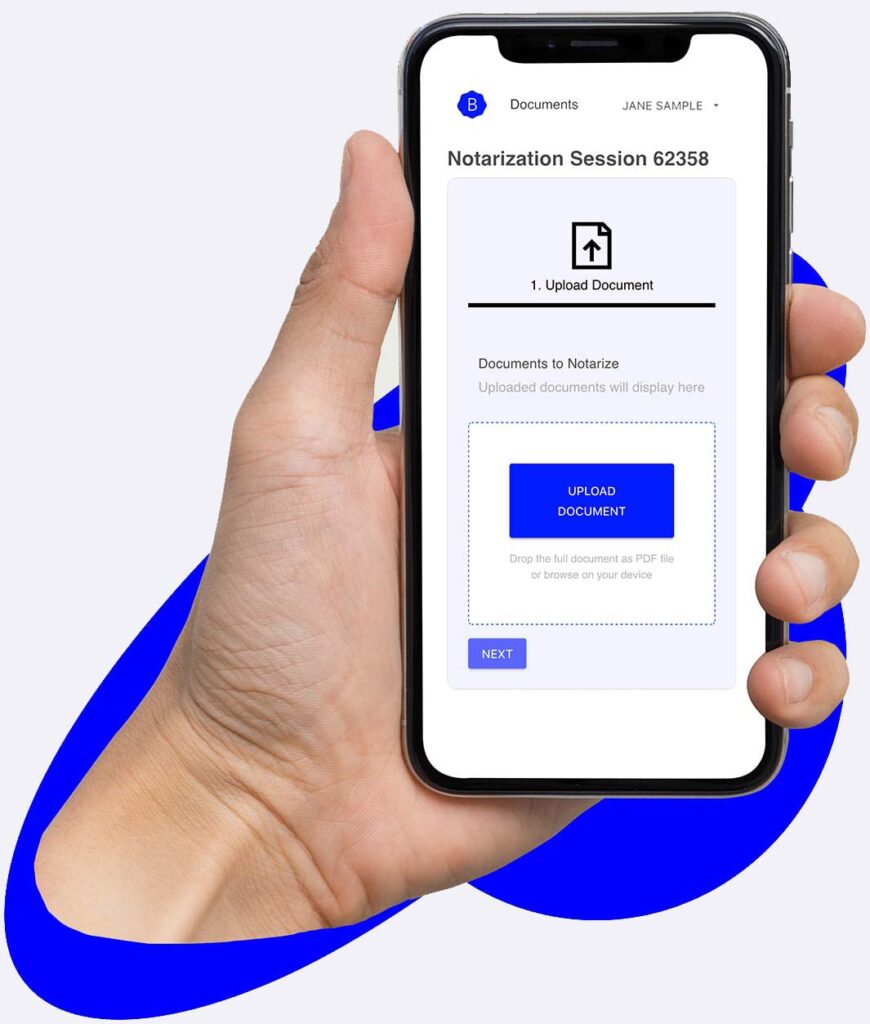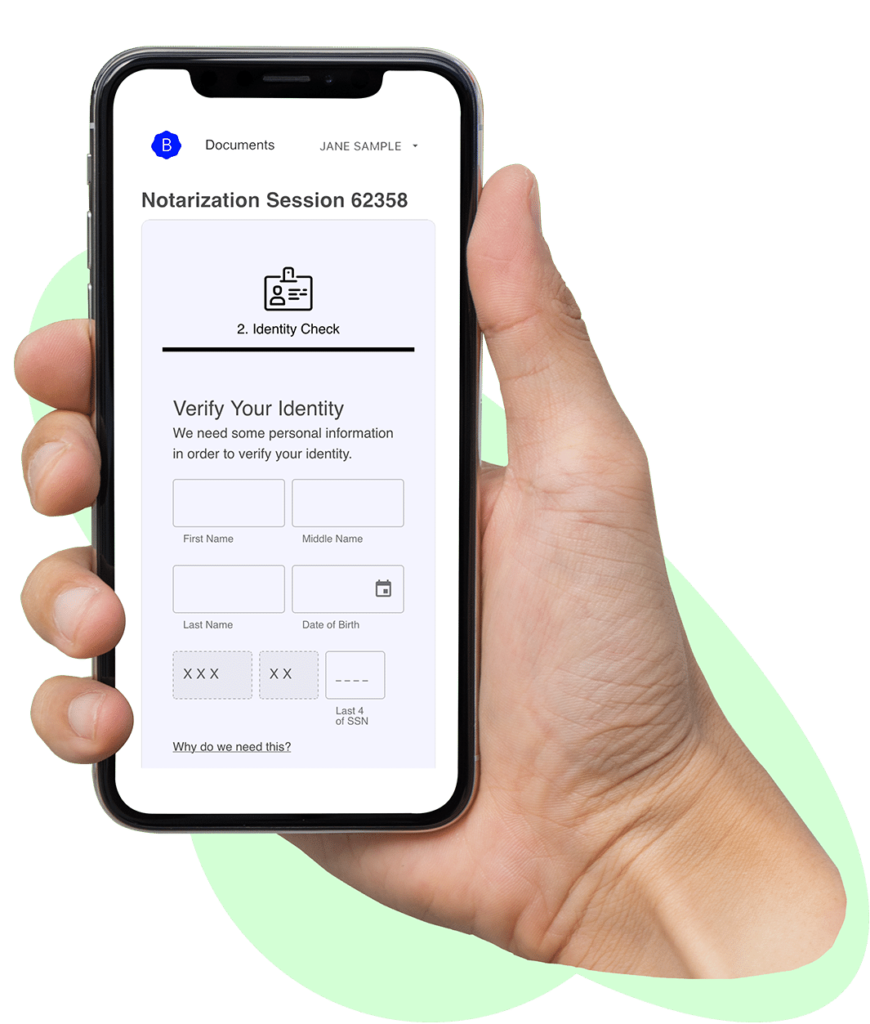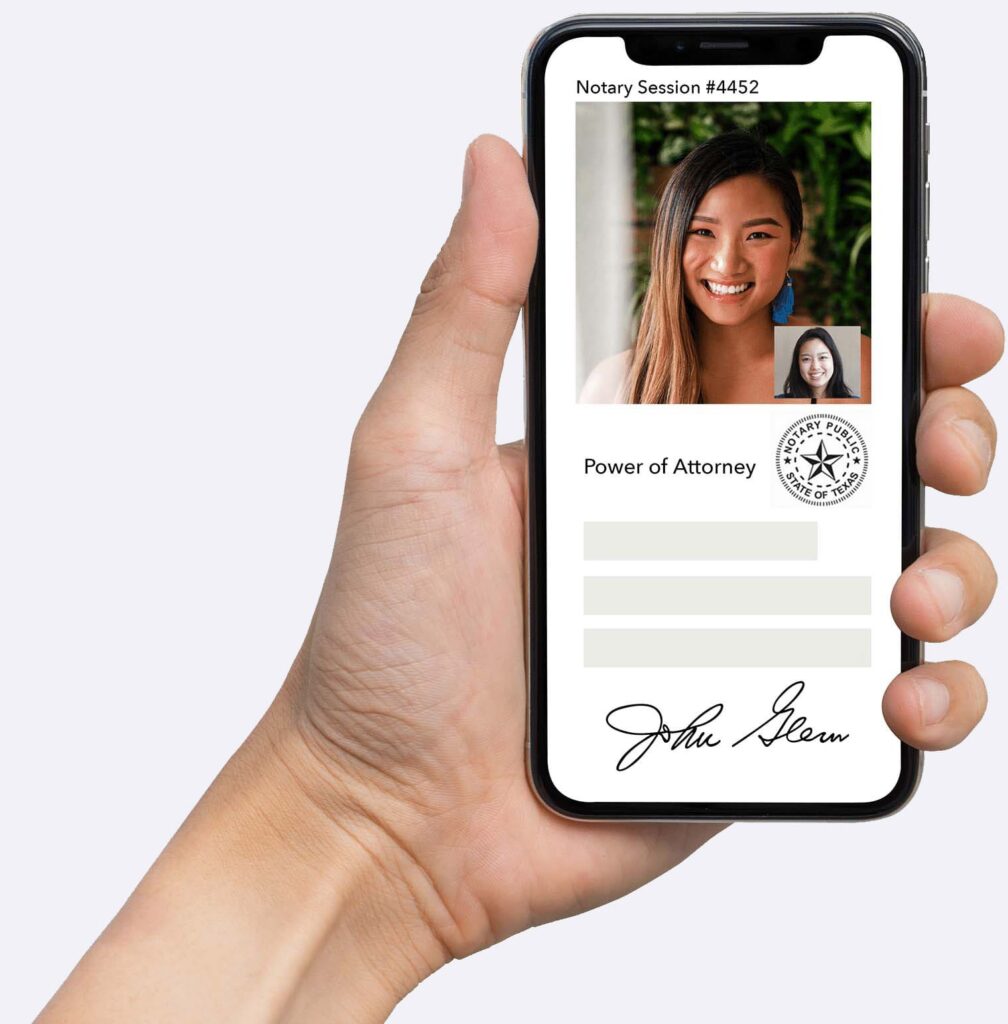Remote Online Notarization
How it Works
If your signing documents remotely, please make sure you meet the following credentials.
As of my last update in September 2021, Kentucky had implemented remote online notarization (RON) through the “Kentucky Revised Statutes Chapter 423” which became effective on January 1, 2020. However, keep in mind that regulations may have changed since then. Here’s a general overview of how online notary works in Kentucky:
Eligibility of Notaries: Notaries in Kentucky are required to meet specific criteria to become an online notary. They must be commissioned as a traditional notary public in the state and apply to the Secretary of State’s office for authorization to perform remote online notarizations.
Approved Technology Providers: Kentucky requires notaries to use approved technology platforms that meet the state’s security and authentication standards for remote online notarization.
Identity Verification: Both the signer and the notary must go through a secure identity verification process. This typically involves verifying the signer’s identity through knowledge-based authentication questions, ID document scans, and facial recognition technology.
Audio-Visual Communication: The online notarization process requires real-time audio and video communication between the signer and the notary. The notary needs to see the signer sign the document and witness their signature electronically.
Electronic Signature and Seal: The notary will apply an electronic signature and digital seal to the document, confirming its notarization. This digital signature is unique to each notary and is used to verify the document’s authenticity.
Notary Record Keeping: Kentucky notaries are required to maintain a journal of remote online notarial acts, capturing details of each transaction, including the date, time, location, and type of notarial act.
Recording and Retention: The notary must retain an audio-video recording of the remote online notarization for at least 10 years. This recording serves as a safeguard against potential fraudulent activities.
Geographic Limitations: Kentucky online notaries can perform remote online notarizations for individuals located anywhere, but the notary must be physically present within the state of Kentucky during the notarization.
Please note that this information is based on regulations as of September 2021, and there may have been changes or updates since then. If you’re considering using online notary services in Kentucky, I recommend checking with the Kentucky Secretary of State’s office or relevant authorities for the most up-to-date and accurate information on how online notary works in the state.
- Convenience: Online notarization eliminates the need to travel to a physical location to meet with a notary. Residents can get their documents notarized from the comfort of their home, office, or any location with internet access.
- Flexible Scheduling: Online notaries often offer extended hours, including evenings and weekends, allowing residents to schedule appointments that fit their busy schedules.
- Time-Saving: Traditional notarization might involve travel time, waiting, and potentially long queues. Online notarization is usually a quicker process, and appointments can be completed without unnecessary delays.
- Remote Access: Online notarization is particularly beneficial for individuals who may have mobility challenges, live in remote areas, or find it difficult to travel due to other reasons.
- Enhanced Security: Online notarization platforms employ advanced security measures, such as multi-factor authentication and identity verification, to ensure the authenticity of the signer’s identity and the document itself.
- Document Integrity: The electronic documents notarized online are often more secure than paper documents. Electronic signatures and digital seals help prevent tampering and maintain the integrity of the document.
- Recording and Storage: Online notarization platforms often maintain a secure record of the transaction, including audio-video recordings, which can serve as evidence of the notarization if needed.
- Reduced Costs: While online notary services may have fees, they can potentially save money by eliminating travel expenses associated with in-person notarization.
- Geographic Flexibility: Residents can access online notary services regardless of their physical location within the state, which is especially advantageous for those who live in areas with limited access to notaries.
- COVID-19 Considerations: During times of health concerns, online notarization can provide a safer alternative to in-person interactions, reducing the risk of exposure.
See the whole process at a glance.
Three Quick Steps
Step 1
Upload Your Documents


Step 2
Verify Your Identity
Step 3
Meet The Notary

Let's Get Started With These Simple Steps
Step 1 – Send Documents
Email the Unsigned Document(s) for remote notarization
Step 2 - Verify Your Identity
We use sophisticated, bank-grade security processes to ensure every signer is legit. Undoubtedly much more secure than traditional notarizations.
Step 3 - Meet the Notary
Sign, seal, and send to whomever needs it after meeting the notary public agent in a live video/audio session.
Book Your Appointment
Request an appointment with Crocker Notary Services for a convenient Remote Online Notarization via Live Video Chat
